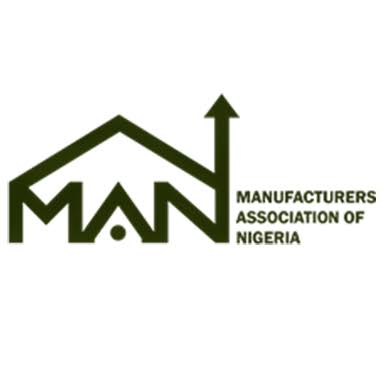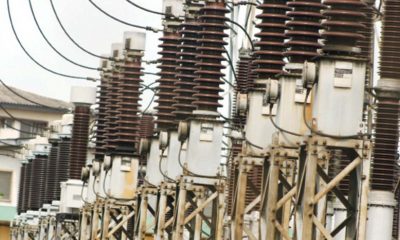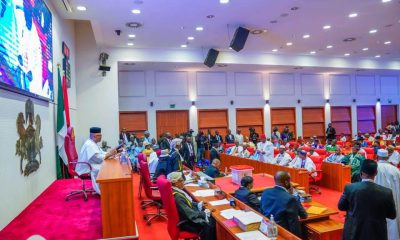Business
CBN’s New Interest Rate May Trigger Critical Distress For Manufacturers – MAN

The Manufacturing Association of Nigeria (MAN) has stated that the new interest rate introduced by the Central Bank of Nigeria (CBN) will further constrain the growth of the manufacturing sector.
The Association lamented that the purchasing power of consumers, production levels, competitiveness and sales will face further decline.
Naija News reports that after the 296th meeting of the Monetary Policy Committee (MPC), which ended on Tuesday, the CBN increased the Monetary Policy Rate (MPR) by 50 basis points from 26.25 per cent to 26.75 per cent.
The MPC widened the asymmetric corridor around the MPR from +100 to -300 basis points to +500 to -100 basis points.
Additionally, the MPC maintained the Cash Reserve Ratio (CRR) for deposit money banks at 45 per cent and for merchant banks at 14 per cent and retained the Liquidity Ratio at 30 per cent.
Reacting to the new rate in a statement made available to Naija News on Wednesday, the Director General of MAN, Segun Ajayi-Kadir expressed concern that, despite the continuous increase in MPR over the past two years resulting in a weighty 1,475 basis point hike from 11.5 per cent in May 2022 to 26.25 per cent in May 2024, inflation has remained persistently high, reaching a staggering 34.19 per cent in June, the highest since March 1996.
He noted that the manufacturing sector plays a critical role in the country’s economy. Segun, however, regretted that it is facing multitude of challenges that threaten its sustainability and contribution to economic growth.
According to Ajayi-Kadir, the continued increase in the cost of borrowing, which is one of the major challenges confronting manufacturers, will “escalate production costs and consequently the prices of finished goods, with consequential effect on unemployment and social instability. It will further compound the prevailing low consumer demand, capacity utilization and profitability.”
He noted that it will stifle capacity to make new and further investments, innovation and curtail opportunities for growth; as well as constrained the capacity of the sector to compete effectively in regional and global markets, “and if unchecked, may trigger critical distress of more manufacturing concerns.”
The MAN DG also contended that it will, “Constrain reinvestment for expansion and introduction of new brands, as significant portion of revenue of manufacturing concerns is directed towards interest payments.
“Further restrain access to capital, judging from the fact that only 16 per cent of total commercial bank credit was disbursed to the manufacturing sector in the first quarter of the year.
“Reduce the flow of investments into the sector and funds required for retooling, upgrading facilities and procurement of new technologies.”
While pointing out that MAN recognizes the rationale behind the hike in interest rate, Ajayi-Kadir stressed the need to prioritize the survival of the country’s manufacturing sector.
“It is noteworthy to state that the worrisome trend occasioned by increase in cost of borrowing is corroborated by the report of NBS, to the effect that manufacturing investment declined significantly in the second quarter of the year. This drop underscores the critical link between domestic investment confidence and foreign investor sentiment. In addition, the share of manufactured exports in non-oil exports also declined from 21.4 per cent in Q4 2023 to 15.1 per cent in Q1 2024,” he said.












